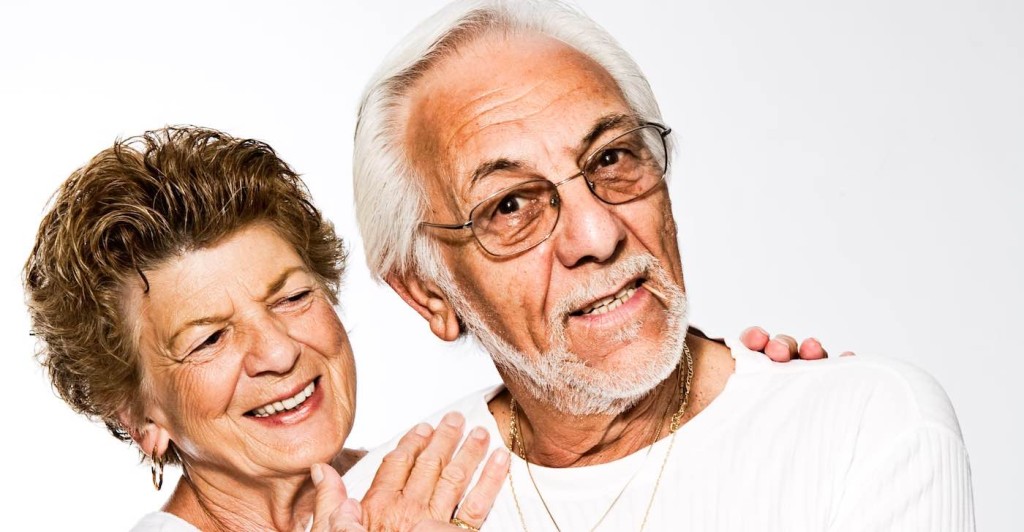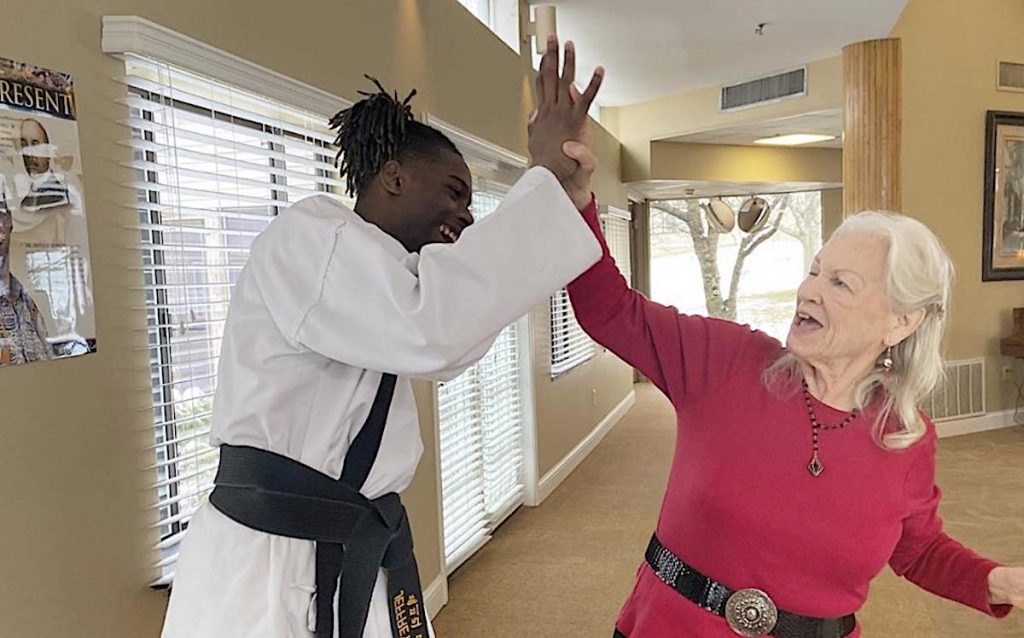Bodies lose their vigor with the passing of the years, but in the emotional realm, older people seem to rule supreme.
For the past 20 years, Susan Turk Charles, a psychologist at the University of California, Irvine, has been monitoring the shifting moods, the sense of satisfaction, and the outbursts of anger and sadness in people of all ages—with a special interest in how we handle and experience emotions as we grow older.
She fell in love with the idea of studying a process related to aging that is not defined by a decline. Unlike physical fitness or cognition, where you may see slowing or declines, emotional regulation and experience are often as good, if not better, as we age.
What is the secret behind this grizzled levelheadedness? How can we make sure that as many people as possible can benefit from it? And what can it teach the young? In 2010, Charles and Stanford psychologist Laura Carstensen coauthored an article on social and emotional aging in the Annual Review of Psychology. They have found that, on average, older people have more satisfying social contacts and report higher emotional well-being.
Since then, the research has revealed even more. Here’s the latest from Susan:
What might explain why aging brains get better at managing emotions?
Some neuroscientists believe that because we’re processing information a little slower with age, that makes us think before we act, instead of reacting quickly. We do see a decline with age in overall mass of the brain’s frontal lobe, the part that is responsible for emotion regulation, complex reasoning, and speed of processing. But researchers such as Mara Mather at the University of Southern California find that older adults often exhibit greater prefrontal cortex activity than younger adults when processing emotions.
A lot of work has found that older people have a positive bias, even without realizing they’re actually doing this. Their default mode is, as we say, “Don’t sweat the small stuff.” We find that older people more often let go of a situation they experience as negative, especially with friends and family. So it is really picking their battles that we think older adults are better at (unless they have cognitive decline, which causes them not to default toward the positive).

Is there a certain age at which we reach a peak in emotional satisfaction?
It depends on what aspects you’re looking at, but the peak we see in terms of the highest positive and lowest negative emotions is between 55 and 70. Then there’s the measure of “life satisfaction,” which includes both happiness and sadness, as well as a cognitive evaluation of how your life is going. For that, we often see a little lower ratings in midlife, lowest among people who are in their early 50s, and then it goes up. So again, it’s higher with older age. Only after 75 do negative emotions start increasing again.
RELATED: 4 in 10 Older Americans Say They’ve Had the Best Sex of Their Lives as They’ve Aged
Yet even centenarians report overall high levels of emotional well-being. Do people who have more positive attitudes and emotions, or encounter less adversity, live longer?
Researchers have looked at what could explain this, and they find that psychological well-being is consistently related to lower levels of the stress hormone cortisol and better cardiovascular health. Other researchers have modeled that—and they still see an age-related advantage.
Emotion regulation improves with age; we see this again and again. These are small effects, but they are consistent. We see improvement for the majority of people, but not for everyone. I don’t know the percentages, but let’s say you have 40 percent remaining stable, 40 percent going up and 20 percent going down, you’ll see people still going up on average.
Why do some people not experience these improvements?
Most of the people who have been included in these studies are what researchers define as WEIRD — people from Western, educated, industrialized, rich, and democratic societies. A lot of the people had financial security, pensions, social systems, and often the people we would interview were middle-class white people who were employed, who had a higher level of education. Compared to younger people of comparable socioeconomic status, the older people looked a lot better. But if older people are in vulnerable situations with constant stressors, or if they are living in pain, you may not see these benefits.
My former mentor Laura Carstensen’s “socioemotional selectivity theory” talks about how everyone has a sense of how much time we have left in our lives. As you get older, you see that there is less and less time left, and people start valuing emotional goals more. Older people will also rather spend time with family and friends than meet brand new people who might be interesting.
Your findings might inspire people to pursue a more positive attitude, but someone who is getting older and more unhappy, might not feel the same.
For people who are unhappy, it’s really important to look at how to structure your days to feel more fulfilled. When you’re making a list of health behaviors, getting enough sleep and exercise, and eating right, are important factors that most people agree should be included, but social relationships is something that is as important as your cholesterol level, yet is often forgotten.
CHECK OUT: Drinking This Juice Could Help Promote Healthy Aging, Scientists Find
Make sure that you spend time cultivating your social ties, treasuring and prioritizing your close friends and family members, at whatever age you are. Finding purpose and meaning in life is also vitally important. What that is can be different for different people, but finding an important purpose and following that can be very emotionally gratifying.
Does that imply there might also be a risk of becoming too emotionally comfortable?
Yes. You can be so comfortable that you no longer encounter any challenges. You really need to stay engaged in cognitive challenges. In a very night over eight days, we followed people over eight days. Every night, they were interviewed, and we’d ask about stressors. Did they get into an argument? Was there a situation where they could have argued, but decided not to? Are there any problems at home or at work?
We asked over 2,500 people every night over 8 days about the relatively minor stressors they had experienced. About 10 percent of the people reported never having experienced even one stressor. They also reported being happier than those who reported at least one stressor. But what we also found was that they performed worse on cognitive tests compared to people who reported at least one stressor. They also reported having received or given less help to others, and that they had spent more time watching TV.

RELATED: Retirees Share Top 40 Pearls of Wisdom With Our Younger Generations
20 years ago, we thought that if you have positive relationships and a certain lifestyle, you can have the highest emotional functioning, the highest cognitive functioning, the best physical health, the perfect life for you. Now it turns out to be a little more complicated. People who are reporting being happiest might not be as high in cognitive functioning.
This may be because people who have no stressors are spending less time with other people. But people you know and love also challenge you and engage you in problem-solving activities. It’s not that you can find optimal well-being in all areas; there might be a tradeoff. It’s like: “I want to be a volunteer, it gives me emotional meaning, I have a lot of purpose in life, but I’m also going to run into some people that may bother me.”
So how can people strive for some balance?
No one size will fit all. For example, we know that people benefit from having strong social ties, but people vary in the number of close friends and time they spend with others. We know that activities that are challenging for some people are boring for others.
LOOK: 70-Year-Old Sets Record as Oldest Woman to Climb Yosemite’s El Capitan, to Better Know Her Son
To achieve balance, people need to know themselves, and make decisions that create dynamic lives where they are socially active and engaged in a way that makes them feel a sense of belonging and makes them feel needed. They need activities that are challenging for them, where they learn new information and have to remember this information—like learning a new musical instrument or the layout of a new park, or even a new video game.

Might there be a way for young people to press the fast-forward button to achieve some of the same emotional benefits older people acquire with age?
In the past 10 years, people have been talking more about mindfulness as an emotional regulation strategy. It takes you away from focusing on the future and reminds you that the present moment is the most important. I think those are things that older people often do, but younger people may need to be reminded of. It can really help to have a moment at the end of the week to say, “Right now, things are going well — let’s just enjoy that for today.” It would be wonderful if that was something the youth could learn from older people.
I think as I grow older, I really understand it more profoundly. I always get a kick out of experiencing myself what the research shows.
Written by Tim Vernimmen, this article originally appeared in Knowable Magazine, a nonprofit publication dedicated to making scientific knowledge accessible to all. Sign up for their newsletter.
Credit: Source link



